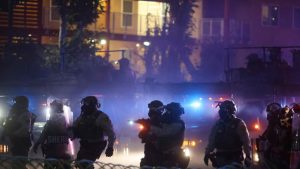North Korean Generals Find Refuge in Putin’s Lavish Resort, Far from Ukraine’s Frontlines
Reports indicate that high-ranking North Korean military generals, deployed to assist Russian forces in the Ukraine conflict, are residing in opulent accommodations at a Russian resort, far removed from the harsh realities of the battlefield. These generals, reportedly close associates of North Korean leader Kim Jong-un, are said to be living a life of luxury and seclusion, contrasting sharply with the plight of the North Korean troops under their command, who face daily dangers and casualties in the ongoing war. The generals’ presence at the resort is described as "ghostly," maintaining a low profile and remaining largely invisible to their own troops.
Kim Jong-un’s Top Generals Lead North Korean Forces in Ukraine, but from a Distance
The two generals identified as leading the North Korean contingent are Kim Yong-bok, a specialist in light infantry and special forces, and Ri Chang-ho, a senior intelligence chief. Kim Yong-bok commands the majority of North Korean forces engaged in the Ukraine conflict, while Ri Chang-ho’s role is believed to involve overseeing drone warfare. Both generals have been frequently photographed alongside Kim Jong-un, indicating their close relationship with the North Korean leader. Experts suggest that these two are among six general-grade officers dispatched by Kim Jong-un to support Russia’s war effort, their presence at the resort confirmed by separate reports.
Hidden from View: North Korean Generals Maintain Secrecy in Luxurious Hideaway
The generals’ presence at the luxury resort is shrouded in secrecy. They are reportedly concealed from both the North Korean troops deployed in Ukraine and Russian personnel. While they maintain regular communication with subordinate commanders, these interactions are not necessarily face-to-face. Their absence from key events in North Korea, events they would typically attend, further corroborates their deployment to Russia and their secluded existence at the resort.
Captured North Korean Soldiers Shed Light on Russia’s "Meat Grinder" Strategy and Deception
Ukrainian forces have captured two North Korean soldiers in the Kursk region, providing a glimpse into the realities faced by North Korean troops fighting alongside Russian forces. The captured soldiers, one of whom possessed a forged Russian identity card, are now being questioned in Kyiv. Their capture highlights Russia’s attempts to conceal North Korea’s involvement in the conflict and the brutal “meat grinder” tactics employed, where North Korean troops are reportedly used as expendable forces in clearing minefields and other dangerous missions. These tactics, coupled with the reported practice of self-elimination or immolation by North Korean soldiers to avoid capture, paint a grim picture of the human cost of the war.
Former North Korean Soldier Predicts Defections and Low Morale among Deployed Troops
A former North Korean soldier, Hyun-Seung Lee, offers insights into the potential motivations and vulnerabilities of North Korean troops deployed in Ukraine. He predicts that these soldiers, largely young and conscripted, will lack commitment to the fight and may seek to defect. He anticipates both individual and group defections, including officers, as they realize their expendable status within the Russian ranks. Lee suggests that the troops will be susceptible to psychological operations aimed at encouraging defection, given their lack of genuine motivation and the harsh conditions they face. He believes their primary motivation will be survival, not loyalty to either North Korea or Russia.
North Korean Troops: Cannon Fodder or Dedicated Fighters? Conflicting Narratives Emerge
Conflicting accounts describe the North Korean troops’ role and behavior on the battlefield. While some depict them as cannon fodder, used in human wave attacks against minefields and other hazardous situations, other reports suggest a different narrative. Accounts from the Ukrainian side claim that North Korean troops often choose self-destruction rather than surrender, using grenades or self-immolation to avoid capture. This raises questions about the level of indoctrination and commitment among these soldiers, suggesting a complex reality beyond the simplistic notion of mere cannon fodder. The contrasting narratives highlight the difficulty in obtaining accurate information about the North Korean involvement in the war and the experiences of the troops on the ground.




